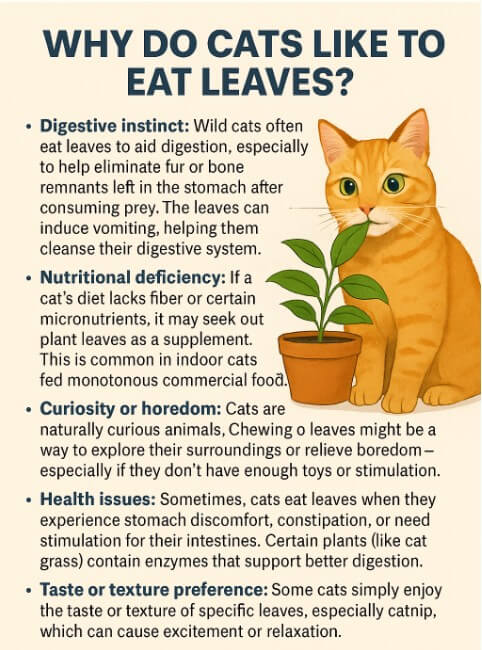Cats may eat plant leaves for a variety of reasons, depending on their instincts, health, and living environment:

Digestive instinct: Wild cats often eat leaves to aid digestion, especially to help eliminate fur or bone remnants left in the stomach after consuming prey. The leaves can induce vomiting, helping them cleanse their digestive system.
Nutritional deficiency: If a cat's diet lacks fiber or certain micronutrients, it may seek out plant leaves as a supplement. This is common in indoor cats fed monotonous commercial food.
Curiosity or boredom: Cats are naturally curious animals. Chewing on leaves might be a way to explore their surroundings or relieve boredom—especially if they don’t have enough toys or stimulation.
Health issues: Sometimes, cats eat leaves when they experience stomach discomfort, constipation, or need stimulation for their intestines. Certain plants (like cat grass) contain enzymes that support better digestion.
Taste or texture preference: Some cats simply enjoy the taste or texture of specific leaves, especially catnip, which can cause excitement or relaxation.
However, excessive leaf-eating or chewing on toxic plants (such as ivy or lilies) can be dangerous. It’s best to provide safe cat grass and monitor your cat’s behavior to ensure its health. If you suspect a problem, consult a veterinarian.
Would you like a version of this formatted for a blog or infographic?